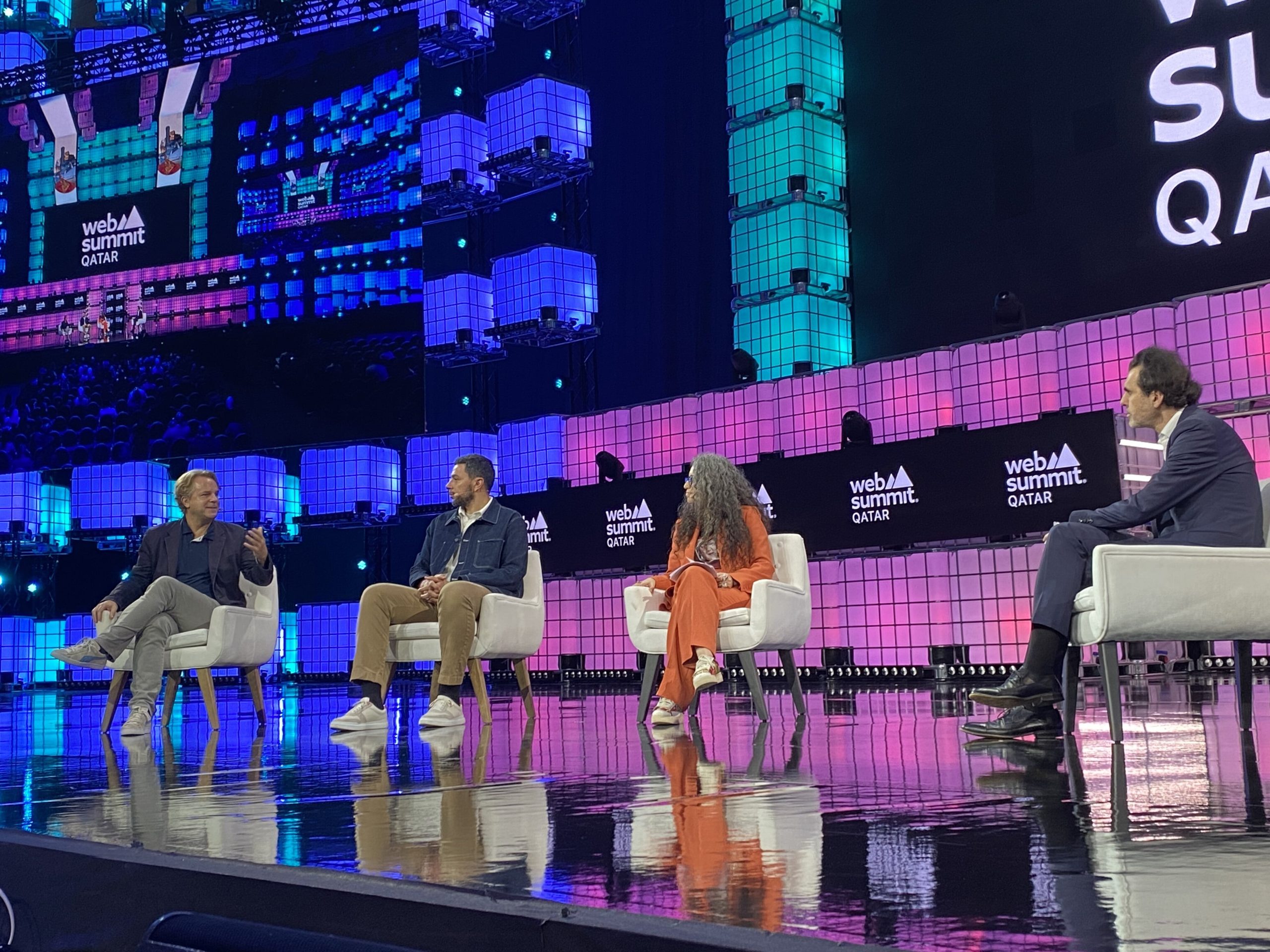Media experts at the Web Summit in Qatar discussed challenges posed by technology and disinformation, focusing on distorted online narratives that have emerged amid Israel’s war on Gaza.
Media experts at the Web Summit in Qatar on Wednesday weighed in on the latest industry challenges in the age of technology, especially amid the ongoing Israeli genocidal war on Gaza.
A panel focused on “the globalisation of news in the age of disinformation” highlighted the online media challenges that distort facts on the ground.
Dima Khatib, managing director at AJ+, underlined the impact of sensationalised information on online users, using the example of the Israeli-led rumours over the alleged beheaded babies in Gaza.
“If you look at all what is called fake news, this information recently the 40 beheaded babies, for example[…]it’s a human that generates the disinformation and then the bots of course, but it’s up to us. Until today, there are people, because of confirmation bias, who still repeat the 40 beheaded babies lie,” Khatib said.
“So it’s up to us to fight this, because it only works because we let it grow,” she added.
Khatib was referring to a rumour that spread online during the start of the Israeli war on Gaza, alleging that Hamas fighters had allegedly beheaded Israeli babies. The uncorroborated claims have since been debunked by experts online.
Also speaking at the panel, Justin Smith, Co-founder and CEO of Semafor, pointed to a rise in global inequality in news between those able to access trusted brands and those who would not be able to do so.
“The more educated, more affluent folks will have not only the education to be able to be more discerning about sources that they actually think are valid or not, but they’re also gonna have the resources financially to actually subscribe to the trusted brands,” Smith said.
Diverting the conversation to disinformation in the United States, Ayman Mohyeldin, an MSNBC host, used the example of fake news under the former Donald Trump administration.
Mohyeldin said the country now has “a pandemic of misinformation as a result of having a president who was the biggest liar in chief.”
“It’s costing our democracy severely and even till this day, perpetuating the biggest lie of all that the 2020 election was stolen or rigged when we know that’s not to be the case. So I think that the dangers to society are extreme and they’re very, very real,” he said.
The prominent journalist noted that while misinformation can be used to promote the truth, it remains a difficult task in the face of massive platforms promoting false information.
Taking the conversation inside the newsroom, Mohyeldin underlined factors that news organisations need to take into account to improve their reporting, ultimately tackling disinformation.
“I think it’s important that the newsrooms make a concerted effort to have a diversity of opinion and people with different experiences to report on what’s happening in the places that they’re covering, not to rely on unverified information, not to rely on computer systems,” Mohyeldin said.
The conversation is part of the topics that have been covered this week at the Web Summit in Doha, marking the first time a major tech event has taken place in the Middle East.
The world’s largest technology conference gathered 15,453 attendees from 118 countries. The major event gathered 1,043 startups, marking the largest such gathering of startups ever in the Middle East.







